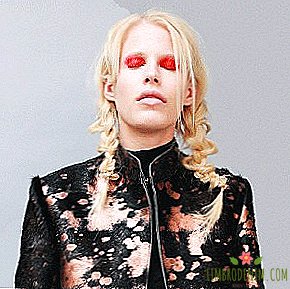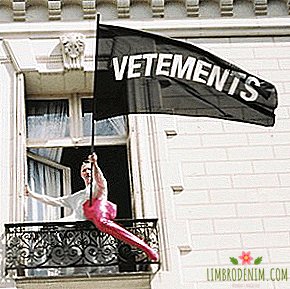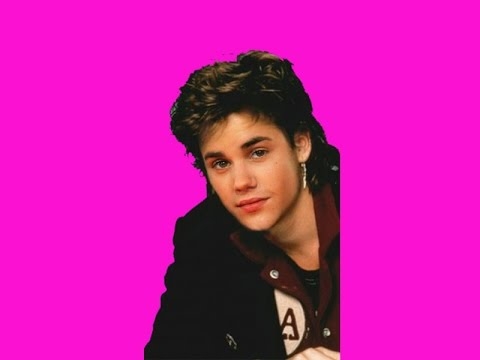Editing director Dunya Sychev about working with Abel Ferrara and emigration
IN RUBRIC "BUSINESS" We acquaint readers with women of different professions and hobbies that we like or are simply interested in. This time, the actress, editing director and producer Dunya Sychev, who had a hand in three films from the recent Cannes Film Festival (including Happy End, Haneke), talks about the friendship with Abel Ferrara, life without citizenship and apartment exhibitions of Russian painting in Paris, who arranged her parents.
On the professions of actress and director of editing
Acting and editing came into my life at the same time. And this is not bad: the theater actor is constantly at work, and the film actor plays for five, eight, fifteen days, and waits the rest of the time. I would not be used to this. At first I worked in the theater, but I always did something else in parallel, such as translation. Translated Florensky into French - "Hamlet" is called, it is such a theological essay, published by Édition Allia; they produce such small but very good books.
One day, unknown people called me: they say they made a documentary about Sokurov and are looking for a translator. They assembled it, but neither the editor nor the director spoke Russian, so they did not know if the sound was well adjusted. I sat with them for a couple of days and checked the gluing - so I saw what mounting is.
At first, I acted in short films with friends - and I really enjoyed the movie. It reminded me of how I was doing music on a computer: the same thing here, only with a picture. After that I decided to go to the famous Gobelins film school in Paris. At the same time, other strangers contacted me and asked to participate in the film. It was such a casting sauvage - casting at random: they were looking for actors who could also play musical instruments. It was my first full-length movie - called "Memory Lane"; it even got to the festival in Locarno. Immediately after the shooting, I still went to Gobelins, received additional education and began to mount and sometimes play.
About working with Ferrara and Haneke
With Ferrara (Abel Ferrara, American director. - Approx. Ed.) we met at the festival in Bordeaux four years ago, I had the film “Maroussia” there. This is the only movie in which I was filming and editing. Casting director was looking for women with Russian roots. We met, and at the same time I was told at the time that there was some kind of film for which they were looking for a Russian-speaking editor. Then the producer calls back and says: "Dunya, is that you?" Cinema eventually won a prize in Bordeaux. Abel was a guest of honor there, we met and immediately became friends.
He called me to work on the film "Pasolini": I spent a week on the set, a little bit even played with Willem Dafoe; then helped with the installation. In 2016, we did a concert together - Abel Ferrara Cabaret - and although only one was planned, we finally decided to arrange a tour and make a film about it. It was necessary to find dates, organize everything - so I became also a producer. Abel says to himself that he is a film director, but he would like to be a rock star. Music for Ferrara is very important, because when he writes the script, often the song becomes a point of reference. "Bad Lieutenant" is a song, "4h44" is a song. His budgets are small and do not allow him to buy music, so he writes it himself: two or three musicians work with him, and almost the entire concert is the music from his cinema.
In "Happy End" Haneke I have more cameo. They needed so many people to play the bourgeois; I shot eight days, and I can see, probably three seconds. The role is tiny, but I played it with pleasure.
On the status of refugees in France
I was nobody for the country when I was born - and so the first five years. I remember the day when I received my citizenship, the first in the family: if you were born and lived for five years without a break, you can ask. And my parents lived for ten years without him. Have father (famous photographer Vladimir Sychev. - Approx. Ed.) There was a Nansen passport, and he traveled with him everywhere.
In 1989, they obtained citizenship thanks to Jacques Chirac personally. My father was on a business trip. In 1988, there were elections in which Chirac was a candidate, and his father photographed him during the election campaign. And Chirac loves Russian and even translated "Eugene Onegin". When he learned that his father had lived in France for ten years without citizenship, he ordered him to write to the mayor of Paris - and within a year after that, everyone in my family received the documents.
About father-photographer and apartment exhibitions
Parents came to France as refugees. At first they were in Vienna, intending to go to America, but six months later they went to Paris to resolve the situation with the paintings. Their parents collect them and because of this they were forced to leave the Soviet Union. The paintings they loved were not considered official. It did not bring any special money, but they really loved these artists, and still love them, they even have paintings under the bed.
In 1974 there was an exhibition that bulldozers demolished ("Bulldozer Exhibition", a well-known public action of unofficial art. - Ed.). Her father was on her, was going to photograph friends. Then five people were arrested, two were arrested, including my father, for two weeks. They said that he was allegedly drunk and brawled, pulled out trees - and my father never drank at all. The problems started because people from the KGB went to those with whom my father worked, and were told not to take photos of Vladimir Sychev. What for? Because if he had been left without work, he could have been put in prison.
His father considers himself a street photographer, he likes how Cartier-Bresson or Koudelka, walk along the street and take pictures. And when he offered his pictures in Paris, it was a success. The fact is that these were the first photos from the Soviet Union, which were not propaganda and showed everyday life. At the same time, my father was never an anti-communist. He said that there are a lot of good things in the Union, there is simply no freedom - political and creative, you cannot love some artists. And so - there are schools, hospitals are working.
Helmut Newton found his father a job in Vogue, a two-year contract. Later, my father began working at Sipa Press and spent twenty-five years there. I photographed everything: the war, the Olympic Games, and fashion, and politics. Center Pompidou recently took his photos to the main collection. Now he is retired, but still takes pictures - this is his life, one might say.
Strangers still come to us and say: "Hello, are you Vladimir Sychev? Are you Aida Khmelev? Can you see the pictures? They told me that you have." Now father lives in Berlin, his mother is in Paris, each has his own collection. But visits continue.




